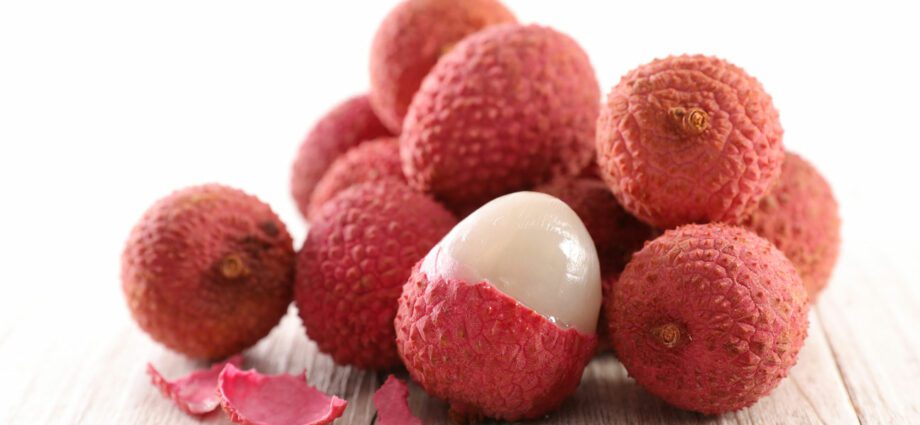Lychee is an unusually tasty and aromatic tropical fruit with the most delicate pulp, containing a large amount of vitamins and minerals that are beneficial to human health.
Lychee fruit: composition, useful properties
The birthplace of lychee is China. It was from there that this fruit spread throughout Africa and Southeast Asia. Lychee is a small oval fruit with a red skin. The bumpy and dense skin is quite easily separated from the pulp, in the center there is a large and hard seed. The pulp is white or creamy in color with a pleasant aroma and refreshing taste. The weight of a ripe fruit reaches 20 g.
Lychees are eaten fresh, added to ice cream, various desserts, sauces, drinks, liqueurs, used as a filling for puddings or pies. Lychee is used to make wine in China
Lychee contains a whole range of vitamins, such as:
- vitamin C (ascorbic acid)
- vitamin H (biotin)
- vitamin K
- vitamin B6
- vitamin B1
- vitamin PP or B3 (niacin)
- vitamin B2
- vitamin B5
- vitamin E
- folic acid
Micro and macronutrients contained in lychee:
- potassium
- magnesium
- sulfur
- phosphorus
- calcium
- sodium
- chlorine
- iron
- manganese
- zinc
- iodine
- copper
- fluorine
There are 100 kilocalories in 76 grams of lychee.
This tropical fruit is considered a strong aphrodisiac, thanks to this property in India, lychees are called the fruit of love.
Lychee consists of pure water, complex carbohydrates, essential proteins and dietary fiber, and a small amount of fat. The amount of sugar in this tropical fruit varies from 6 to 14% (it all depends on which variety the lychee belongs to, in which area it was grown). Due to the high content of vitamin C and potassium, lychee is recommended for people suffering from cardiovascular diseases. Chinese people consume these tropical fruits to protect against atherosclerosis. Lychee also helps to lower blood cholesterol levels.
In addition, lychee has many other useful properties. It perfectly quenches thirst, regulates the work of the intestines and stomach, relieves constipation, and helps to fight excess weight. Some doctors recommend including this fruit in the diet for people who have peptic ulcer disease, anemia, diabetes, diseases of the pancreas and liver, gastritis. In addition to the pulp, lychee skin is also used, from which a decoction is prepared and used to increase the general tone and prevent the accumulation of fluid in the tissues.
Lychee in combination with lemongrass and other medicinal herbs is used in China to treat cancer
This fruit improves the functioning of the liver and kidneys, has a beneficial effect on the functioning of the lungs, so it is recommended to eat lychees for asthma, bronchitis and even tuberculosis. With diabetes, it is enough to eat only ten fruits to bring blood sugar levels back to normal. These properties of lychee are considered unique.
Before buying lychee, you should pay attention to the color and condition of the peel. If it is too dark in color, this indicates that the fruit was plucked a very long time ago and has managed to lose its useful and taste properties. Choose fruits that do not have any defects; the rind should be a deep red color.










